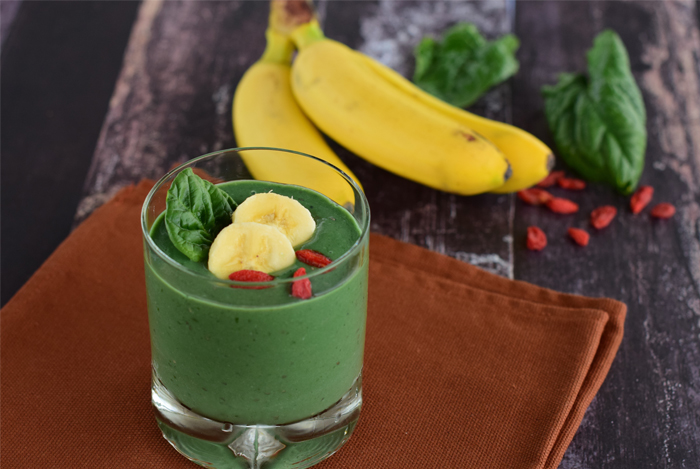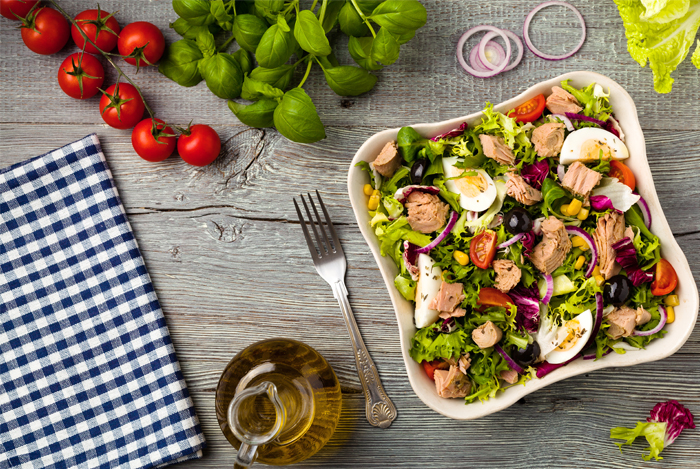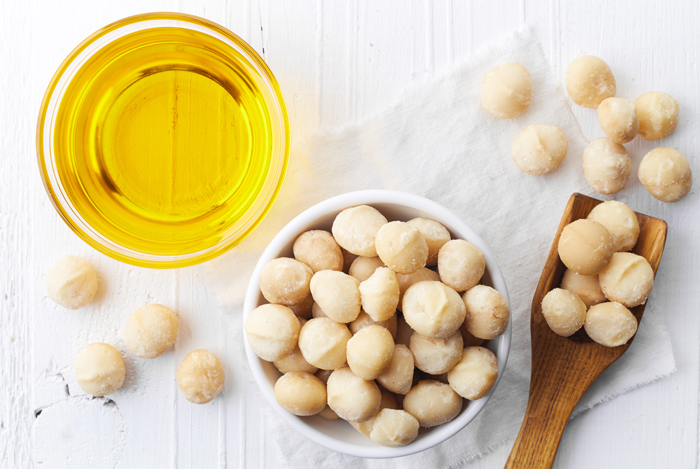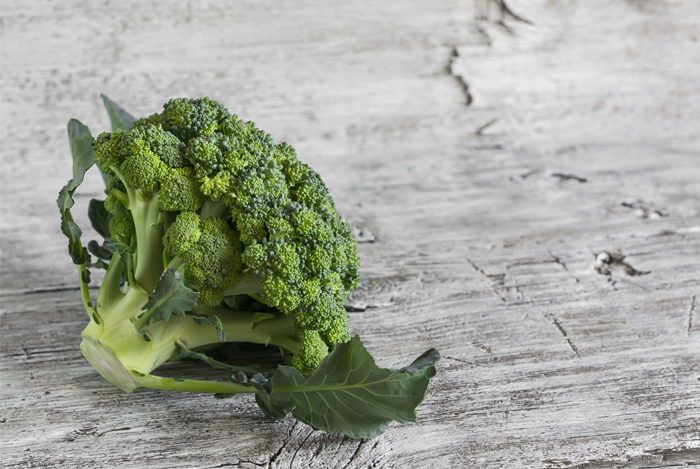We’ve all heard that we should eat for heart health, brain health, and many of us even eat for optimal digestive and weight health too, but what about eating for optimal vision? There are a number of foods that can affect your vision that you may not know and some important dietary choices you can make to improve your vision health starting today.
We may not think vision health is of utmost importance, but imagine not being able to see your favorite things, read your favorite materials, or having to spend a certain amount of money on vision care each year.
Even if you wear glasses or contacts, there are still a number of food choices you can make that will improve your vision and may even protect your eyes from further damage.
Eating for optimal vision is as simple as eating for better heart health; start with whole foods and from there add in specific, nutrient-dense foods shown to improve vision health.
In order to do this, you’ll need to start with the nutrients that help improve vision and sustain vision health which are all listed below.
Add these nutrients and foods that improve vision to your regular routine, and watch your vision health change right before your eyes—literally!
5 Super Nutrients That Improve Vision and the Top Foods for Vision Health:
1. Vitamin A – Beta-Carotene

Vitamin A is found in a variety of forms through dietary choices, so there’s no need to opt for a fancy supplement. The healthiest sources of Vitamin A come from foods rich in beta-carotene. Beta-carotene is an antioxidant-rich carotenoid that your body converts to Vitamin A and helps to protect vision and even restore some vision loss as a result.
Beta-carotene and Vitamin A are also critical nutrients you need in order to improve the way your eyes look (such as clearness and reduced redness). They also improve your skin by reducing redness, wrinkles, and breakouts.
Top Food Sources:
- Leafy Greens
- Carrots
- Winter Squash
- Cantaloupe
- Sweet potatoes
- Spirulina
- Wheatgrass and green powders
- Watercress
- Apricots
- Carrot juice
- Red Bell Peppers
Action Tip for Optimal Results:
Eat your Vitamin A-rich foods with a healthy source of fat like almonds, avocado, olives, pumpkin seeds, or another source of healthy fat you enjoy.
Why?
Because Vitamin A is a fat-soluble vitamin meaning you can’t properly absorb the vitamin without some fats in your diet. You don’t need to eat a lot, even a teaspoon or tablespoon will make all the difference in how your body absorbs and uses these foods above to assimilate the beta-carotene into a usable form of Vitamin A that will improve your vision.
2. Vitamin C: The All-in-One Antioxidant

Vitamin C is an antioxidant found in all fruits, vegetables, and leafy greens that does everything from improve your immunity to improve the quality of your vision, and it even helps reduce stress and high blood pressure levels. Vitamin C is important for vision health because it reduces inflammation in the retina and even reduces the chances of cataracts and macular degeneration.
Top Food Sources:
- Berries (all)
- Apples
- Sweet potatoes
- Kale
- Romaine
- Fennel
- Spinach
- Pineapple
- Tomatoes
- Kiwi
- Mango
- Oranges
- Broccoli
- Brussels sprouts
- Red Bell Peppers
- Asparagus
- Bananas
- Peaches
- Grapefruit
- Some dried fruits (unsweetened mulberries, goji berries, figs)
Action Tip for Optimal Results:
Vitamin C is a water-soluble vitamin so you don’t need to worry about eating it with any healthy fats but you can if you choose to. However, you should be sure to get your Vitamin C from whole foods since your body uses these much differently than it does synthetic forms like those found in Vitamin C pills that are made from ascorbic acid (typically made from GMO sources of corn).
3. Omega-3 Fatty Acids: The Magical Fat for Optimal Health

Healthy fats aren’t just important for your heart and brain; you also need them for optimal vision too. Omega-3 rich foods such as salmon, halibut, mackerel, walnuts, flax, hemp, chia, and the fruit acai berry are all fantastic for your vision health. Omega-3 fatty acids fight inflammation in the blood vessels that are found in all parts of the body, including your eyes. They can also improve vision clarity and the appearance of your eyes as a result.
Top Food Sources:
- Salmon
- Halibut
- Mackerel
- Tuna
- Acai berry
- Omega-3 fortified eggs
- Fish oil
- Walnuts
- Flax
- Chia
- Hemp
- Pumpkin Seeds
Action Tip for Optimal Results:
Omega-3 fats are easily absorbed by the body, so you can pair them with vegetables, greens, and fruits to make limitless healthy meals for optimal vision. Just be sure not to rely on too many fatty foods during meals since healthy fats should be eaten in balance with other foods for optimal vision such as vegetables, fruits, leafy greens, and whole grains. A serving of healthy fats at each meal is plenty enough to get results for optimal vision quickly!
4. Vitamin E: The Beauty and Brain Health Antioxidant

Vitamin E is a fat-soluble vitamin that you need for a healthy brain, healthy joints, clear skin, and yes, optimal vision too. It’s well-known for immunity-boosting benefits, but Vitamin E is also very important for taking care of your eyes because it reduces inflammation in all parts of the body.
Vitamin E rich foods are very easy to find from whole foods and these foods can provide multiple anti-inflammatory benefits starting with reduced redness in the retina, improve eyesight, and healthier blood flow to the eyes to improve long-term vision.
Top Food Sources:
- Walnuts
- Plain peanut butter
- Almonds
- Avocado
- Olives and olive oil
- Macadamia nuts
- Spinach
- Sunflower seeds
- Wheat germ
- Tocotrienols (raw rice bran solubles)
- Trout
Action Tip for Optimal Results:
Since Vitamin E is a fat-soluble vitamin and found in many fatty foods, it’s normally easy for your body to absorb. However, for foods such as spinach that don’t contain a lot of fat, you’ll need to be sure you pair it with a little healthy fat for optimal absorption.
Eating a daily salad with spinach, avocado, and some sunflower seeds is an easy way to get in some Vitamin E and other nutrients for vision health, or add a tablespoon of peanut butter, almonds, walnuts, or some sunflower seed butter to your next green smoothie as another tasty option!
5. Other Super Carotenoids: Lutein and Zeaxanthin

Beta-carotene isn’t the only carotenoid that you need for optimal health and vision, but it’s sadly the only one you usually hear about. For this reason, you’ll want to make yourself familiar with two other super nutrients that you need for optimal vision. These nutrients are the two carotenoids lutein and zeaxanthin.
Lutein and zeaxanthin dramatically improve macular health by improving the retina pigmentation and improve the clarity of your vision. They also protect the cells in all parts of the body, including those in they eyes that are more delicate and prone to damage since they’re exposed to the external environment. Lutein and zeaxanthin have even been shown to be key nutrients in preventing blindness!
Top Food Sources:
- Leafy greens (especially collards, turnips, dandelion, kale, spinach and romaine)
- Cruciferous veggies (broccoli, Brussels sprouts, cauliflower)
- Papayas
- Corn (choose non-GMO)- especially purple and blue varieties of corn
- Nectarines and oranges
- Squash (all varieties)
- Eggs (choose organic for optimal benefits)
- Green peas
Action Tip for Optimal Results:
Your body can easily absorb these carotenoid compounds, but like beta-carotene, it’s still smart to include them with healthy fats in your diet for optimal absorption. A meal example that provides you with these nutrients is some cooked greens of choice with some broccoli, butternut or spaghetti squash, and two whole eggs (which provides healthy fats and the two nutrients).
You’ll also need to take in plenty of mineral-rich foods, specifically those high in zinc such as oysters, yogurt, mussels, pumpkin seeds, wheat germ, spinach, sunflower seeds, cashews, raw cacao, and lean poultry.
What About Foods to Avoid for Optimal Vision?
There isn’t a specific list of foods that directly hurt your eyes, but if you consider that reducing inflammation is a key player in improving vison health, you’d only benefit from removing the following inflammatory foods from your diet.
Inflammatory Foods To Minimize and/or Avoid for Optimal Vision:

- All refined grains
- All refined sugars
- Too many added sugars
- Junk foods
- Fast foods
- Excess caffeine
Smoking and alcohol consumption should also be avoided for optimal vision health and overall health due the way they promote inflammation in the body and reduce health blood flow to the arteries and blood vessels.
If you eat a well-balanced diet with many of the foods above, you can be rest assured that your vision health will improve as a result and you’ll prevent damage to eyes as much as possible through dietary choices. But don’t stop there—why not also consider adding in these 15 foods to your diet that give you the most bang for your buck too!
The post How Your Choice of Food Can Affect Your Vision appeared first on Nutrition Secrets.
http://www.nutritionsecrets.com/how-your-choice-of-food-can-affect-your-vision/
No comments:
Post a Comment